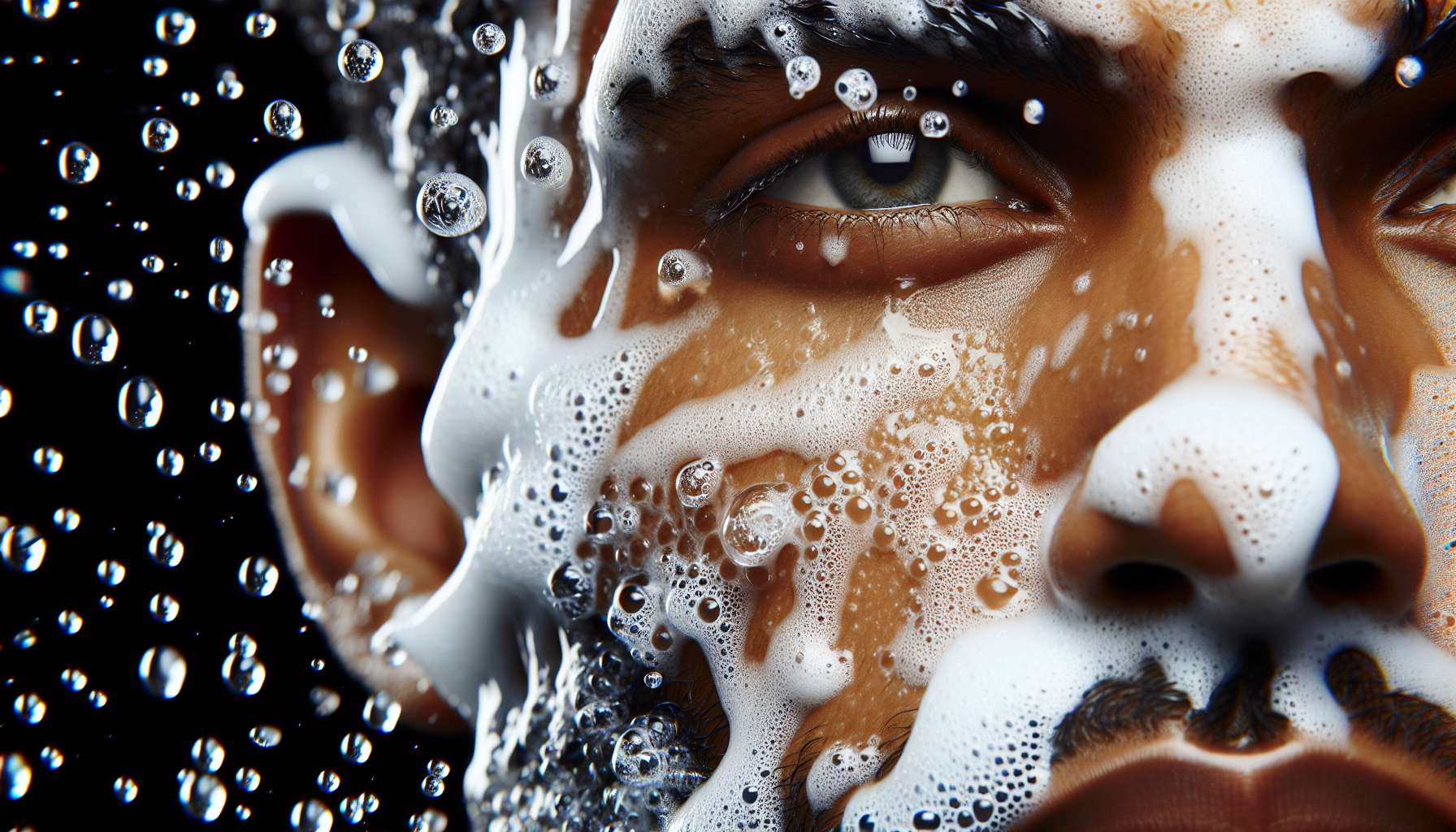The foundation of a robust skin care routine begins with the simple act of cleansing. Regular facial cleansing is not only essential for removing the accumulation of dirt, oil, and other unwanted debris, but it also provides numerous benefits that contribute to the overall health and vitality of the skin. In this comprehensive guide, we will dive into the importance of facial cleansing, its impact on skin health, and how to effectively incorporate it into your daily regimen.
The Importance of Cleansing in a Skin Care Routine
Cleansing should be the first step in any skin care routine. It sets the stage for other products to work effectively by clearing away impurities that can hinder their absorption. Moreover, cleansing helps maintain proper pore size, encourages skin hydration, and prevents the production of excess oils.
Maintaining Pore Size and Preventing Blemishes
Cleansing assists in managing the PH levels of the skin, which in turn, helps retain sufficient water and product retention. Without regular cleansing, your skin would be covered with a thick layer of dirt and grime which makes it difficult for other products to penetrate the skin properly.
Encourages Hydration
Dehydrated skin looks and feels rough, wrinkled, and aged. Cleansing helps manage PH levels of the skin; enabling sufficient water and product retention. For information on skin hydration, you might find our article on Summer Skin Hydration Techniques for Maximum Radiance quite insightful.
Prevents Excess Oil Production
Excess oil can lead to acne and other skin problems. Cleansing removes excess oil as well as the dirt and debris that oil tends to attract. It’s important to note that cleansing is not about stripping the skin of oils completely but about maintaining balance. Over-cleansing can be just as problematic as not cleansing.
Deep Cleansing and Its Long-Term Effects on Skin Health
A deeper cleansing routine can involve using products that exfoliate, remove dead skin cells, and unclog pores. This process reveals fresh skin cells and gives the face a smoother, more radiant appearance. Regular deep cleansing can also support the skin’s natural healing processes and enhance the effectiveness of skin care products.
For a broader look at the benefits and considerations of professional skin care therapies, consider reading about Professional Skin Care Therapies and Their Long-Term Effects.
Selecting the Right Cleanser for Your Skin Type
Choosing the correct type of cleanser is critical to ensure that it meets the needs of your skin without causing irritation. For instance, individuals with dry skin may benefit from cream-based cleansers, while those with oily skin may prefer foaming or gel cleansers.
For personalized recommendations, our article on Personalizing Skin Care Products for Unique Skin Types offers excellent guidance.
The Connection Between Cleansing and Other Aspects of Health
Regular facial cleansing not only keeps your skin free from impurities but is also linked with other health benefits. For example, there is an interconnection between digestive health and skin clarity. An efficient cleansing routine can help in reducing the stress on your skin, which may reflect on your digestion and overall health.
Step-by-Step Guide to Effective Facial Cleansing
- Start with Clean Hands: Before touching your face, thoroughly clean your hands to avoid transferring bacteria and dirt.
- Use Lukewarm Water: Hot water can strip your skin of essential oils, while cold water won’t effectively remove the grime.
- Apply Cleanser Gently: Use your fingers to apply the cleanser in a circular motion, starting from the center of the face and working outwards.
- Rinse and Pat Dry: After cleansing, rinse your face several times with lukewarm water and gently pat your skin dry with a clean towel.
- Follow with Toner and Moisturizer: To replenish moisture and prepare the skin for further care, follow up with a toner and moisturizer.
External High-Quality Resources Supporting the Importance of Facial Cleansing
- The American Academy of Dermatology offers detailed guidance on face washing 101, which can serve as a primer on the basics of facial cleansing.
- The International Dermal Institute provides insights into the science of skin cleansing, explaining the importance from a dermatological perspective.
- For those interested in the chemistry behind skincare products, Chemistry Connection delves into the composition of facial cleansers and how they work at the molecular level.
Incorporating Cleansing into Your Lifestyle
Cleansing should be done twice daily – in the morning to remove any toxins the skin eliminates during the night and in the evening to clear away makeup and the buildup from the day. However, your lifestyle may dictate additional cleansing needs or adjustments.
Common Mistakes to Avoid
- Over-cleansing: This can strip your skin of natural oils and lead to irritation or increased oil production.
- Using the Wrong Products: Pay attention to how your skin reacts to different cleansers and choose one suitable for your skin type.
- Neglecting to Wash after Exercise: Sweat can clog your pores and lead to breakouts, making it crucial to cleanse after heavy perspiration.
Conclusion
The benefits of regular facial cleansing are vast, impacting not only the appearance of your skin but its overall health. It is a fundamental component that can prevent a multitude of skin issues, from acne to signs of aging. By choosing the right products, understanding the connection to overall health, and avoiding common mistakes, you can maintain vibrant, healthy skin.
For more in-depth information on skin health, visit our dedicated section on Skin Health at Avix Health. Remember, a diligent skincare routine paired with the right knowledge can lead to radiant, clear, and resilient skin.



